
We all love Fridays, don't we? At least for those who, just like me, only report to the office from Mondays to Fridays.
In my case, I look forward to Fridays because it's that day of the week I get to share with you another write-up on how you can better manage your Personal Finances.
Just a quick review of what we've discussed so far, in Part 1, I enthusiastically talked about the Top Limiting Beliefs about Money while in Part 2, I discussed how to Examine and Establish your Financial Goals.
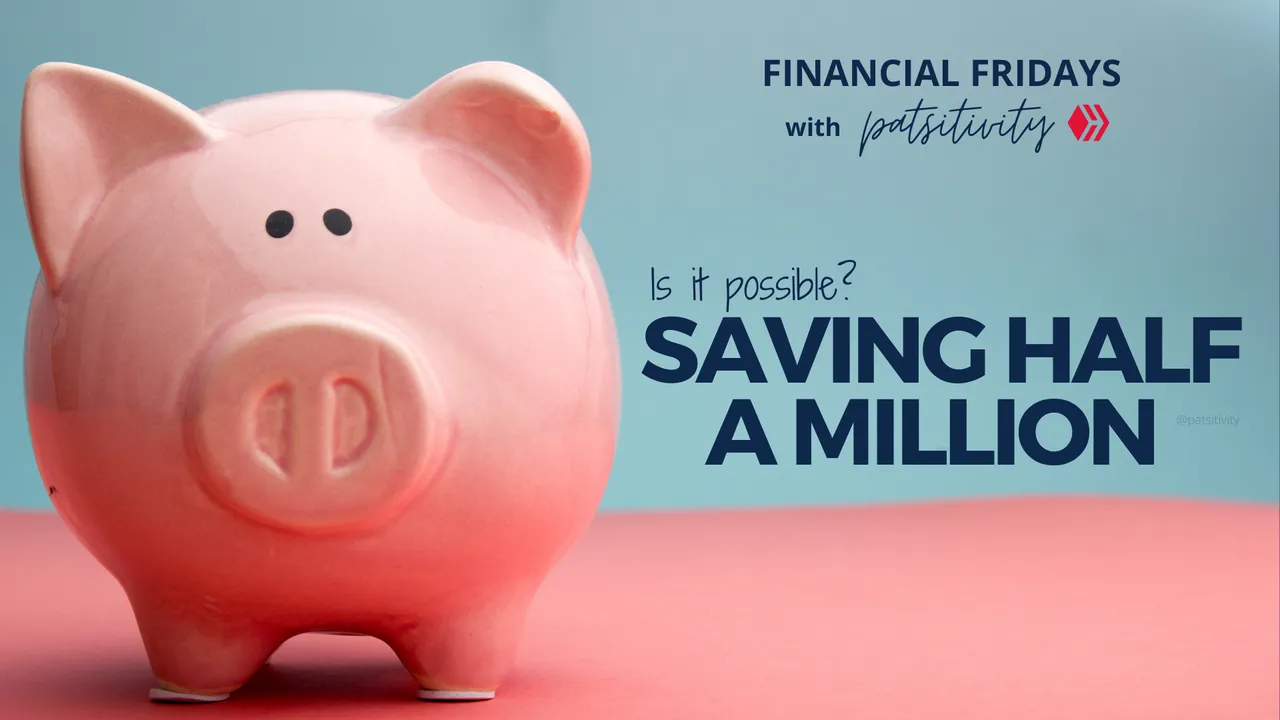

Now let's continue where we left off! We'll still use the H.E.A.L framework that Edric Mendoza introduced to me during a Personal Finance seminar last year.
Just to recap, H.E.A.L means:
H ave the basics in place
E xamine your goals
A djust for uncertainty
L ook beyond the finances
We're done with Examining your Financial Goals. Today, I'll talk through the second part of Edric's framework which is "Having the Basics in Place".
Are you ready? I'll make it as simple as possible. 💯
HAVE THE BASICS IN PLACE
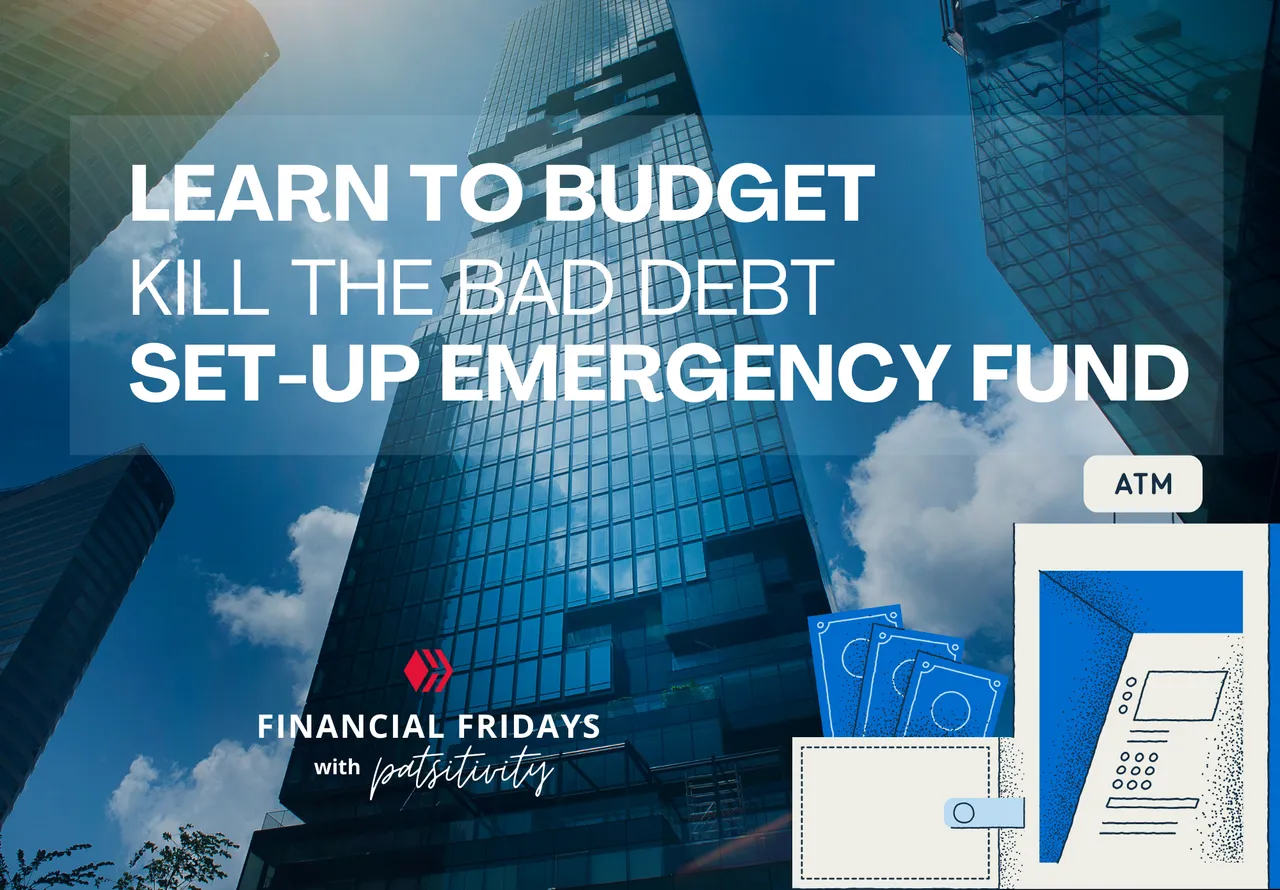
Once you're done examining and identifying what your short-term, medium-term, and long-term financial goals are, you are set to start your journey to Financial Freedom.
Now, Edric mentioned four (4) basic aspects of our Personal Finances that should be established before anything else. These are the following:
- Learning how to budget
- Killing the bad debt
- Setting-up emergency fund
- Lending only what you're willing to give
In my discussion tho, I will be omitting the last one and transfer it to the practical tips in managing one's finances which I will write about after completing the H.E.A.L framework.
I don't want to overload you with information. Hence, I will only be discussing Budgeting in this post. No worries for I will still tackle the other aspects some other time.
LEARNING HOW TO BUDGET
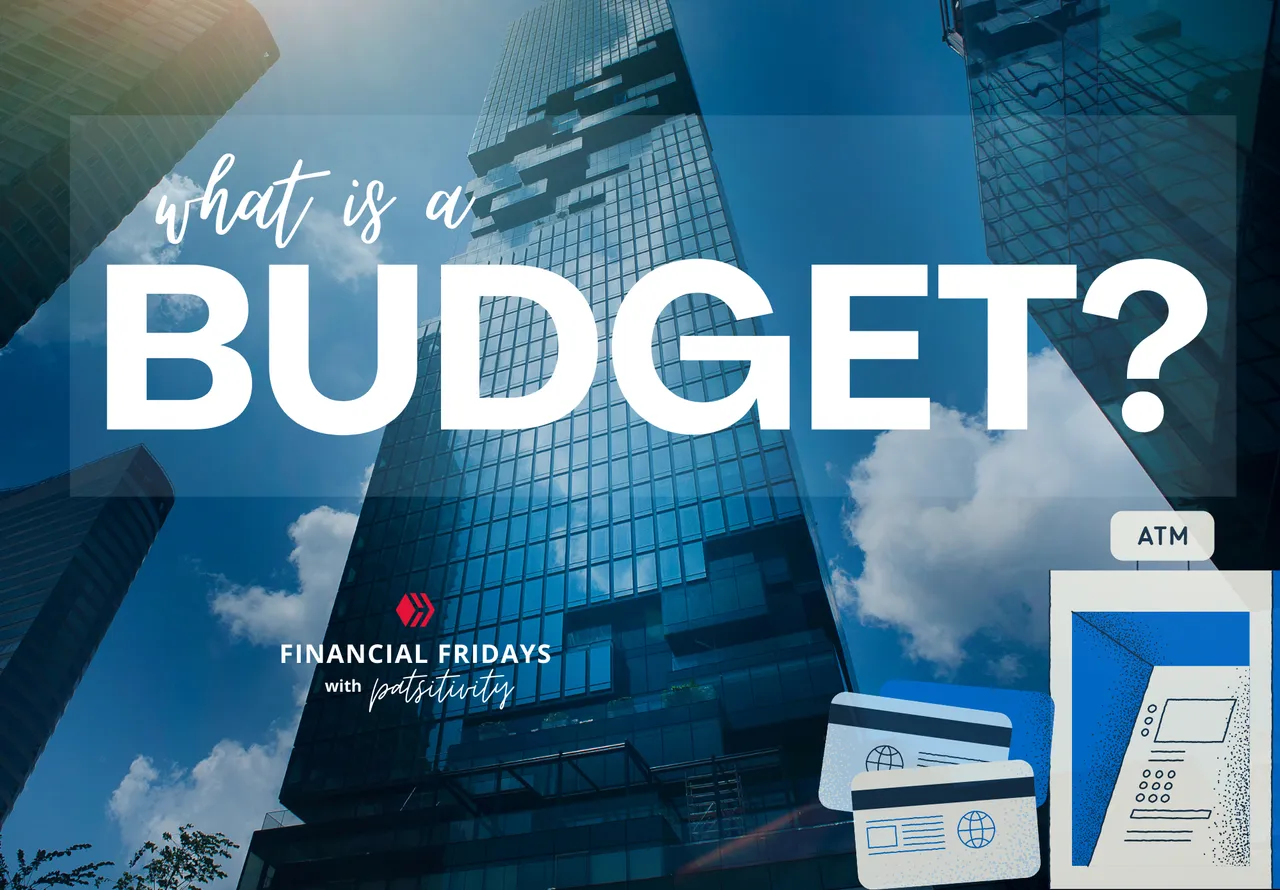
Whether you have one job with no side hustle or one job with multiple side hustles, whether you are working a 9-5 job or a freelance one, earning money is not easy. It never will.
Now imagine, you've spent your whole life working and you've never achieved anything financially. The culprit could be: you didn't budget. This is worrisome but, just like anything else, it is never too late to regain power and control over your finances. And you can start doing it by learning how to budget.
WHAT IS A BUDGET?
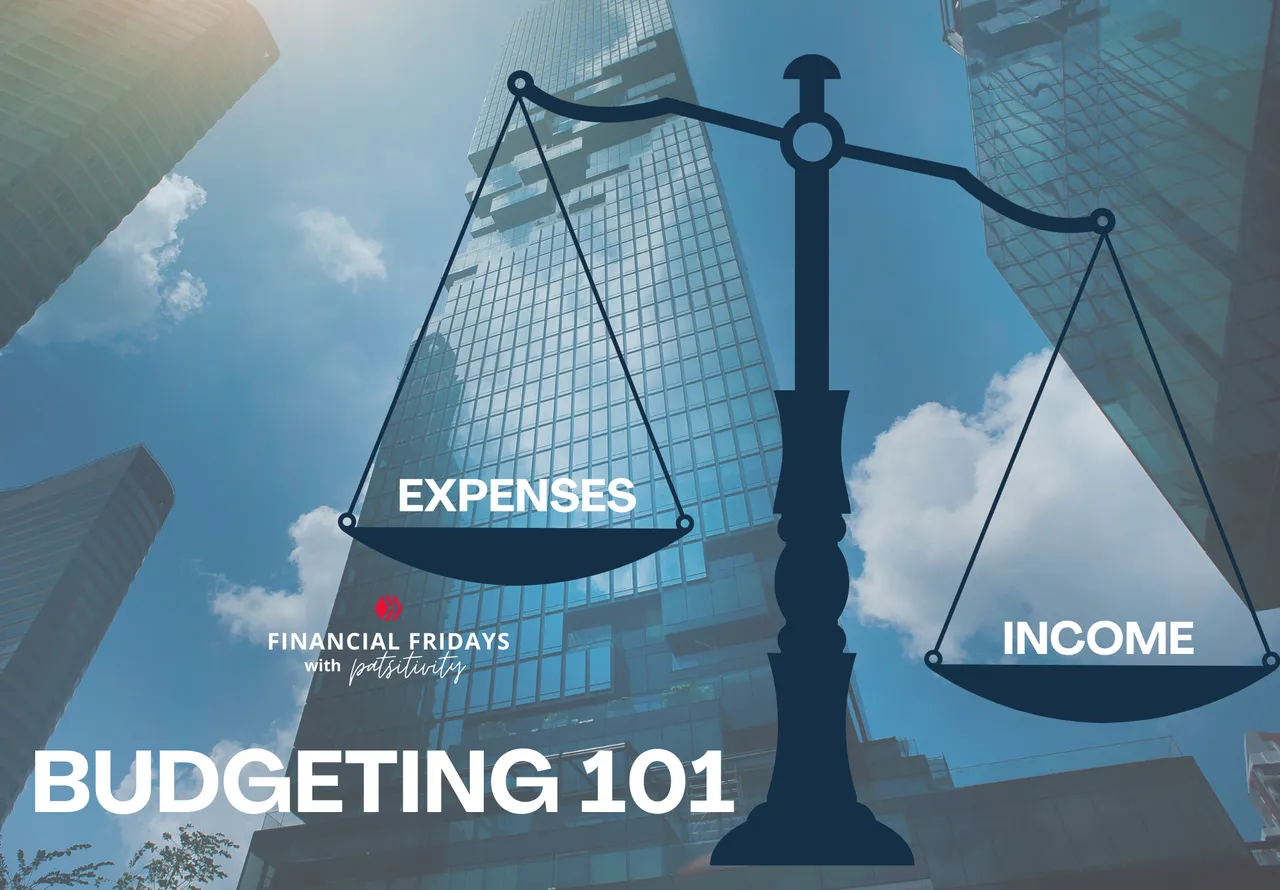
A budget is basically your plan on how you are going to spend every hard-earned penny. I personally love this definition from PennState University, "budgeting is balancing your expenses with your income now and for the rest of your life".
Simply put, budgeting is just balancing what you earn and what you spend. If you earn Php 50,000 ($1,000) a month, budgeting will give you an idea of what you can afford and what you can't afford.
WHY BUDGET?
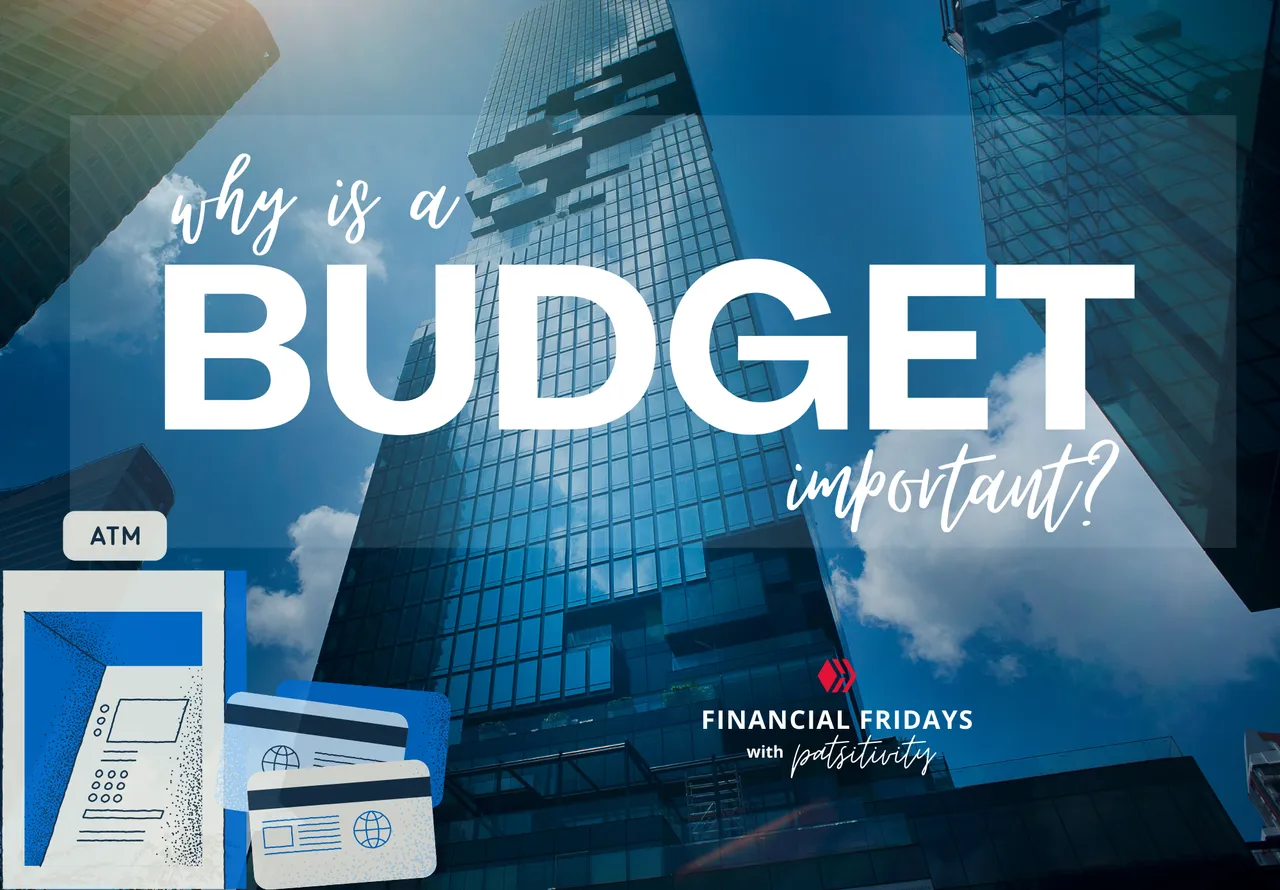
Based on experience, I can see three major reasons why it is important to budget, namely:
(1) Harnessing your relationship with your money
One is that budgeting helps us create a better relationship with our money. Consequently, this ensures that we have available funds to spend on the things we need to survive on a daily or monthly basis.
(2) Understanding our capacity to spend
Second is that budgeting brings forth a clear understanding of whether we are living within our means. One main goal when we budget is to ensure that we only spend what we earn and not the other way around. Budgeting gives us an idea of what goes where and why. So that the next month you ask yourself why you don't have money, you have something to look back and tell why such a thing happened.
(3) Prioritization and reallocation of funds
Unless you really earn a huge amount of money either from your salary, a business, or investments, you might need to allocate resources — your hard-earned money to all the things that must be paid in a month — as effectively and efficiently as you can.
In the case when your expenses have surpassed your earnings, budgeting can guide you where to cut expenses to give way for the more important budget item/s.
THE BUDGETING PROCESS
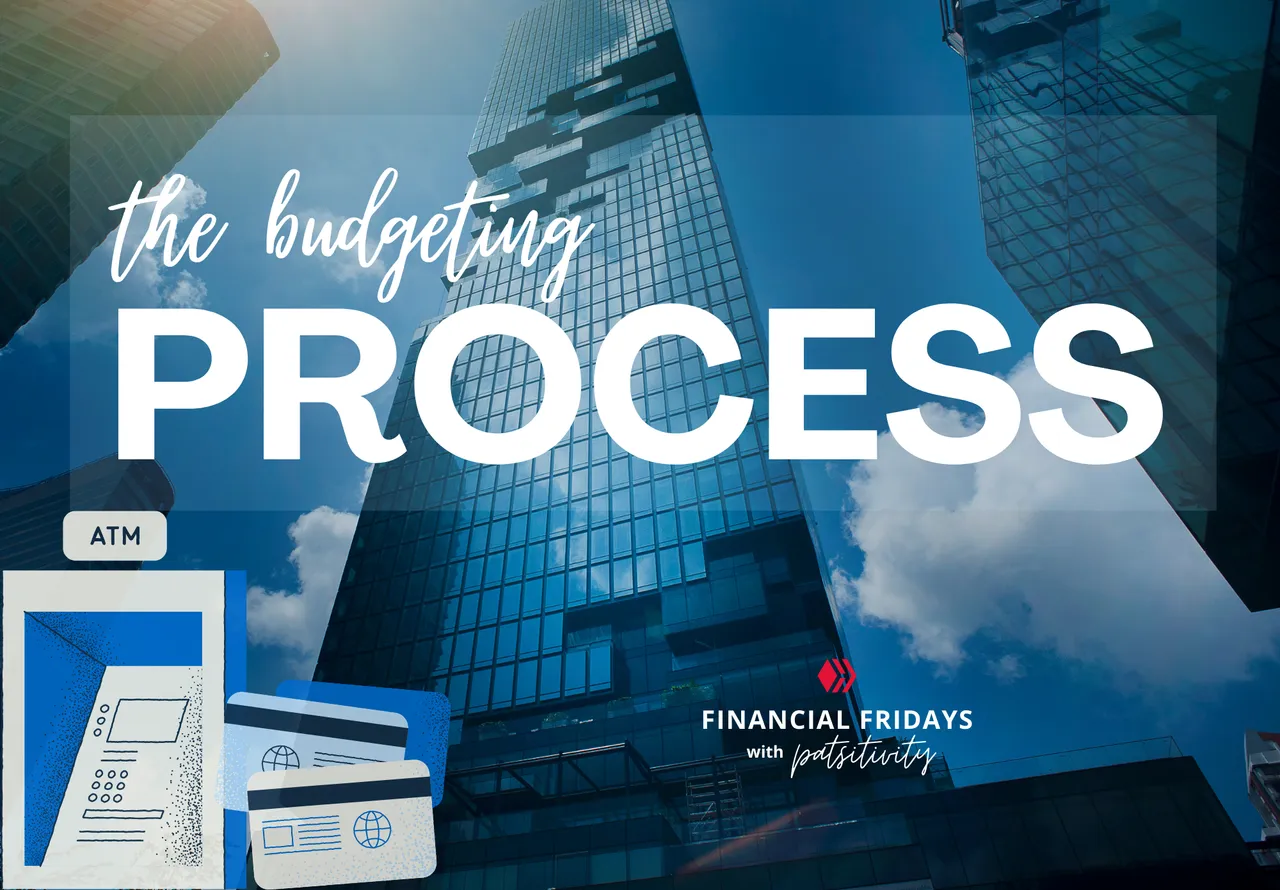
This budgeting process is patterned after NerdWallet's framework. There are six (6) steps that should be given equal attention and importance:
(1) Calculate your after-tax income
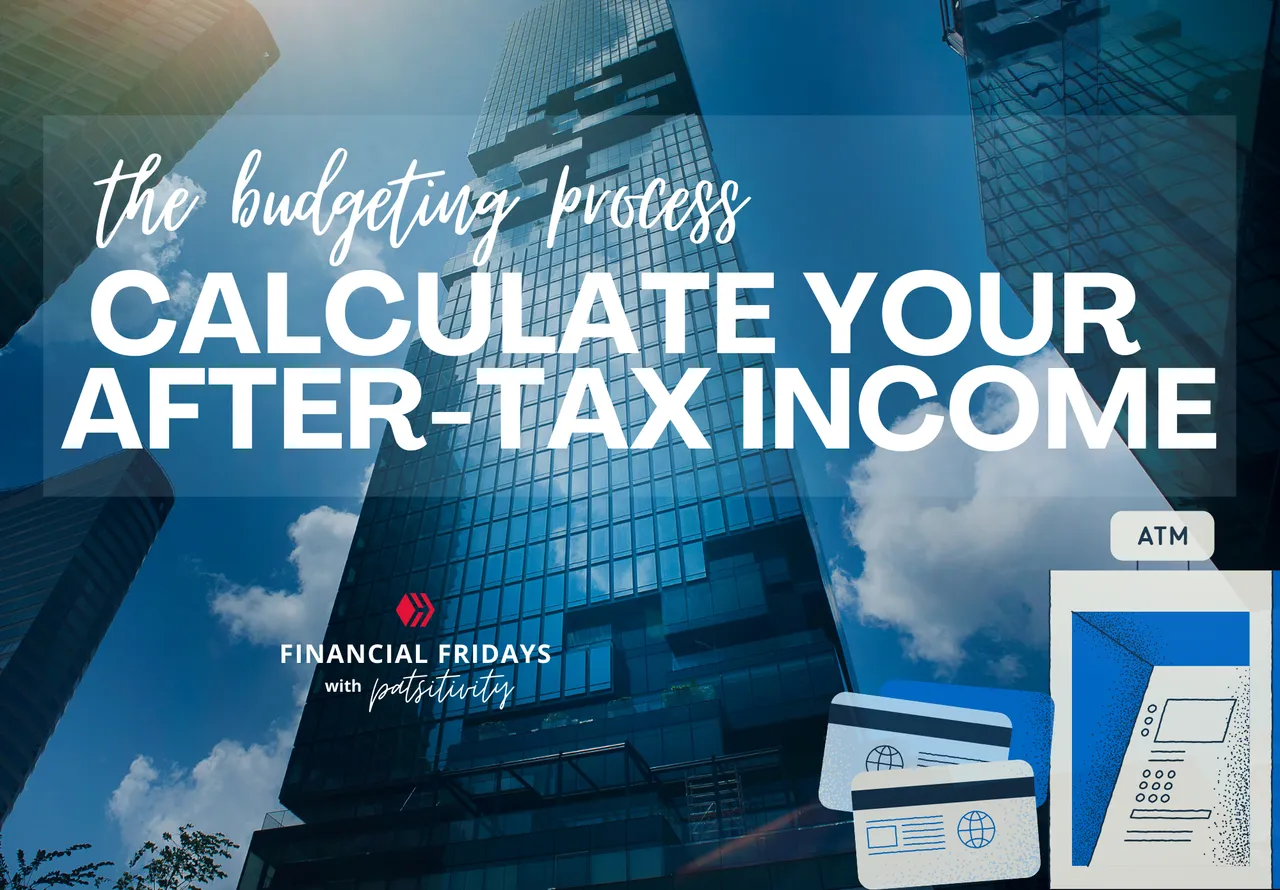
As defined by Britannica, after-tax income, or what I love to call "disposable income", is that "portion of an individual's income over which the recipient has complete discretion".
In my case, this is my net pay. The amount I get bi-monthly after deducting withholding taxes, government-mandated contributions (SSS Premium, HDMF Contribution, PHIC Premium, etc.). My disposable income is also net of my monthly savings. I've automated my savings. I'll tell you more about this below.
For those who are freelancers, your disposable income could be an estimate of your monthly earnings. I suggest that you use an average figure or the lowest possible monthly income to use in your budgeting.
(2) Select a budgeting plan
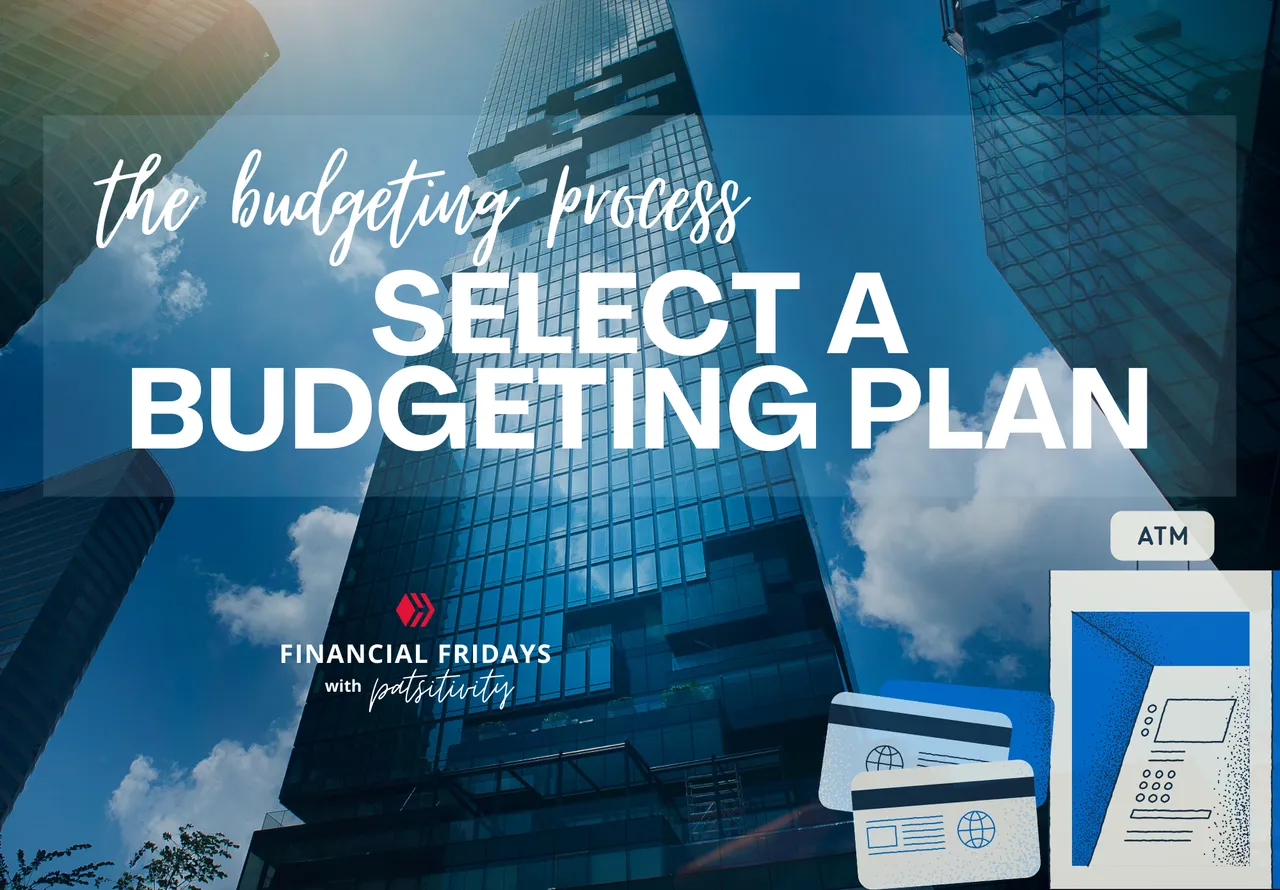
Once you are aware of your disposable income, the next step is to select a budgeting plan. I will briefly discuss five (5) budgeting plan that you can choose from. Each plan has its own pros and cons.
The 50/30/20 Budget
In this budgeting plan, 50% of the after-tax income goes to necessities (such as groceries, payment for utilities, rent, or mortgage), 30% to wants ( budget for dining out, new gadgets, travel), and 20% to savings (emergency fund, college fund for your kids, insurance, retirement). Pretty straightforward, right?The 50/20/20/10 Budget
Another budgeting plan is the 50/20/20/10 Rule. According to FMC Financial, with this budget plan, 50% of the disposable income goes to living expenses and other essentials, 20% to savings, investments, and any debt payment, another 20% is allocated for wants and lastly 10% is for charities and the like.The Envelope System
This method is a great way to cut your spending without tracking every single centavo. This is a cash-based budgeting plan. All you need to do is to prepare a list of your spending categories such as grocery, mortgage, tuition fee, transportation, and others. Then allot and label one envelope for each category. Once you're done put the budgeted amount in each labeled envelope. The rule is to spend whatever amount is inside the labeled envelopes for whatever purpose you set them at the start of the month. Nothing more, nothing less.Pay Yourself First
This method is used if your goal is to build up your savings for whatever reason there is. Pay yourself first is simply deciding what portion of your net pay or how much you're going to set aside for savings, taking it out from your disposable income, and using the remaining amount for whatever other things you'd like to spend it for. Pay yourself budget plan is the best for individuals who want to make sure that they'll be able to set aside money for savings while not tracking all other expenses. Every payday, take out an amount for savings and you're good to go.Zero-based Budget Plan
According to Nerdwallet, zero-based budgeting is a method that will require you to assign all of your take-home pay to all available spending categories such as living expenses, savings, investments, and others. The main goal of this budget plan is that your disposable income minus your expenditures equals zero by the end of every month. I am using the zero-based budget plan. This budget plan is a bit bloody since you have to track everything. I'll tell you how I track my expenses some other time, okay?
(4) Automate your savings
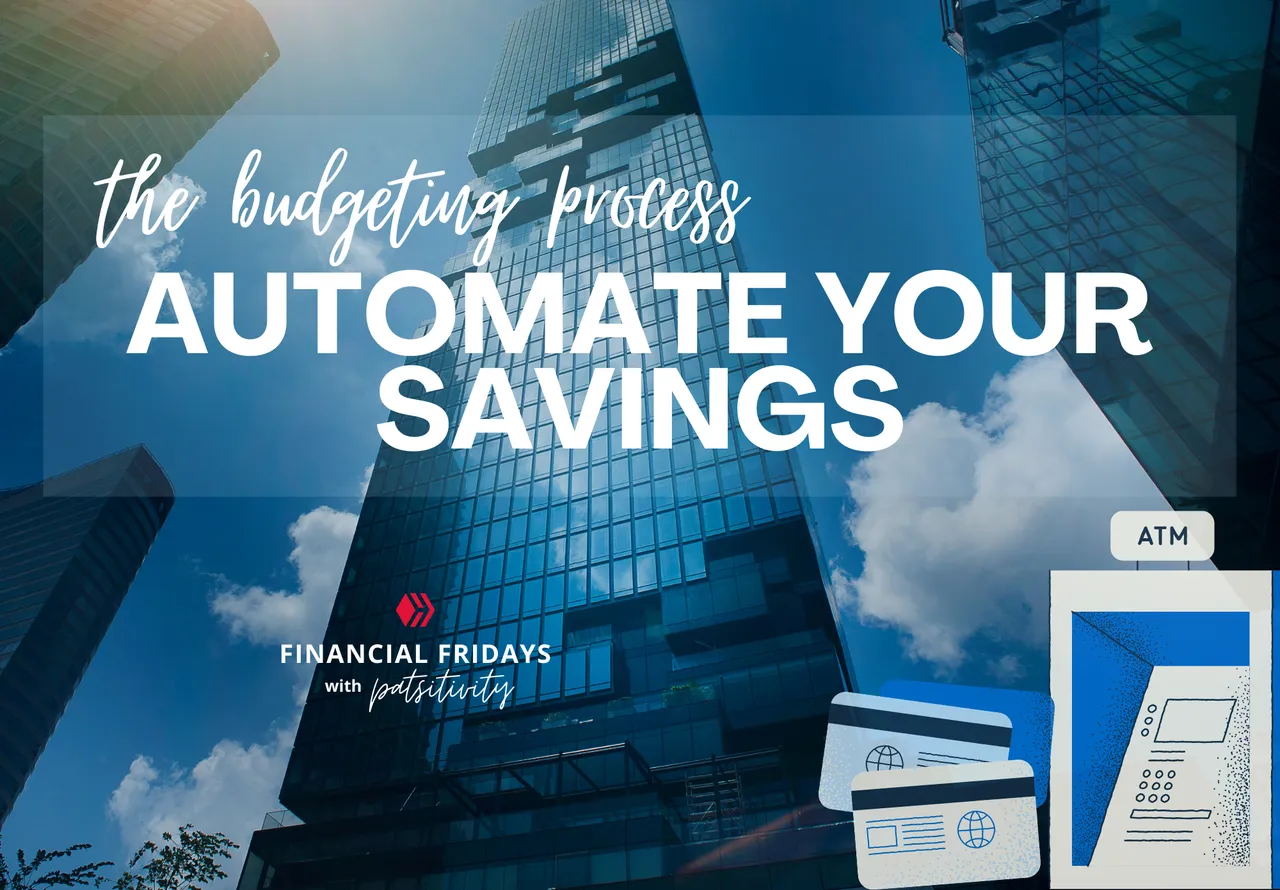
Ever since I started working, I've adapted the 20% savings rule, which is basically taking out 20% of my disposable income for savings and savings alone. This may sound hard when after you receive your paycheck there will be a lot of temptations (free delivery promos in Food Panda, Shopee and Lazada monthly sale, the countless Milktea shops and stalls that offer up to 50% off every now and then). This is the very reason why automating your savings will save you from all the inevitable temptations surrounding us.
Based on personal experience, automating my savings allowed me to think that I don't have spare money to spend on useless stuff that Marketing and Advertising companies project as essentials. I only spend the cash net of my savings.
How I managed to automate my savings? We have this cooperative in the office that offers high interest-paying savings account. We save and borrow money from the pool of savings from all the employees' contributions.
If you don't have something like this, worry not for the pandemic has paved way for various Digital Banks that are not only PDIC insured but over 400-600x interest rate compared to traditional banks. I strongly advise setting up a separate savings account for your savings.
Keeping a portion of your salary as savings but leaving it in the same payroll account is not gonna work. Unless you are disciplined to the highest level. Open a new savings account now!
(4) Monitor your progress
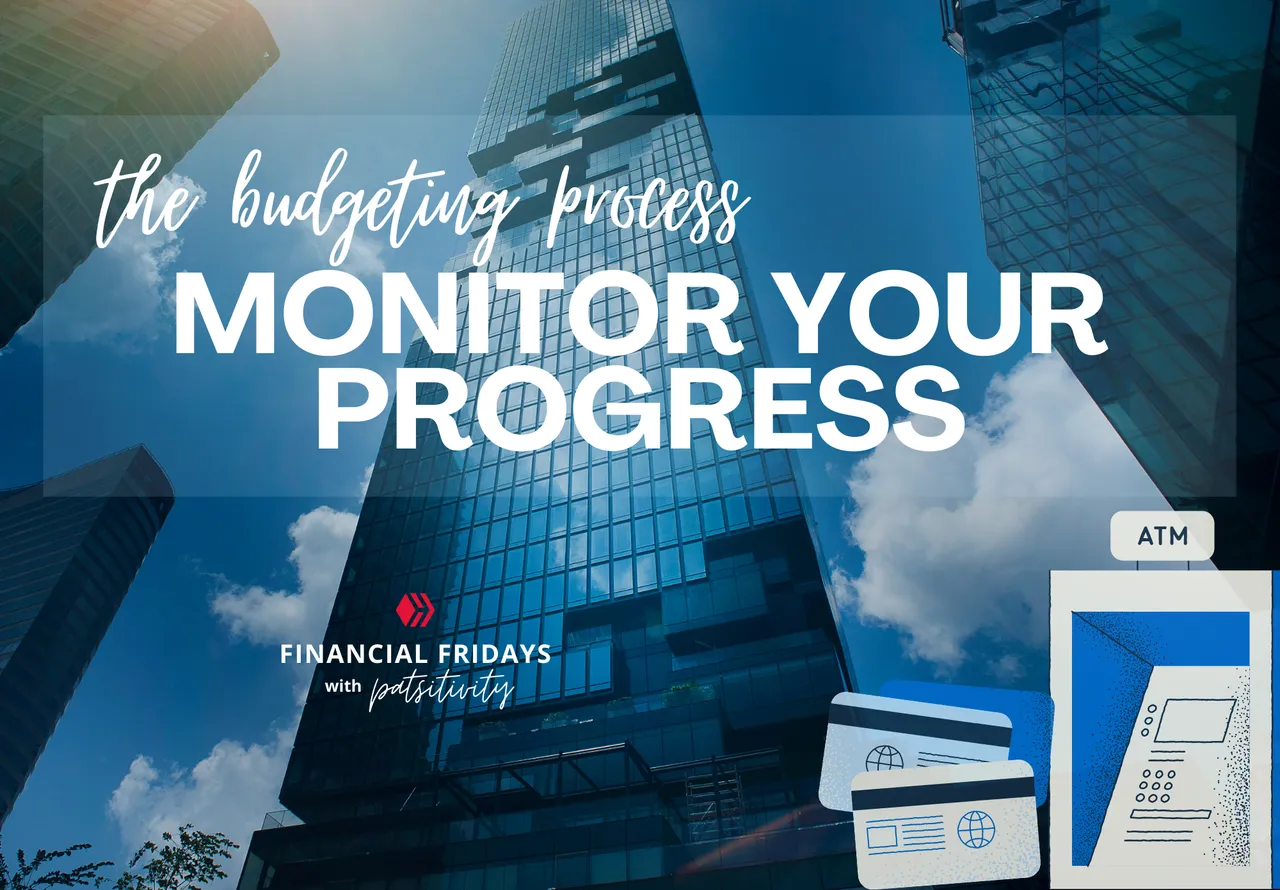
You are probably occupied with countless tasks in and out of work. Hence, it's pretty understandable that keeping track of your finances is not on your priority list. But the budgeting process could be complete unless you keep track of what you have budgeted versus what you have actually spent after a month (if you're doing a monthly budgeting). If you haven't tried monitoring, give it a try. There is this freedom and peace you get only from knowing that you've done great in bother budgeting and keeping the actual spendings as close to the budget as possible.
You can use whatever tool provides more efficiency in tracking where your money goes. Also, you can make use of any free budgeting and tracking applications you can find online. In my case, I use a spreadsheet to manage and monitor my money down to the last centavo. Would you love to hear how I track my money? Let's see what I can do for you.
The thing is monitoring and measuring how you performed that is budget versus actual will give you insights on where you can do better the next time you budget. You'd get better at handling your money this way. Trust me. 😉
(5) Revisit your budget as needed
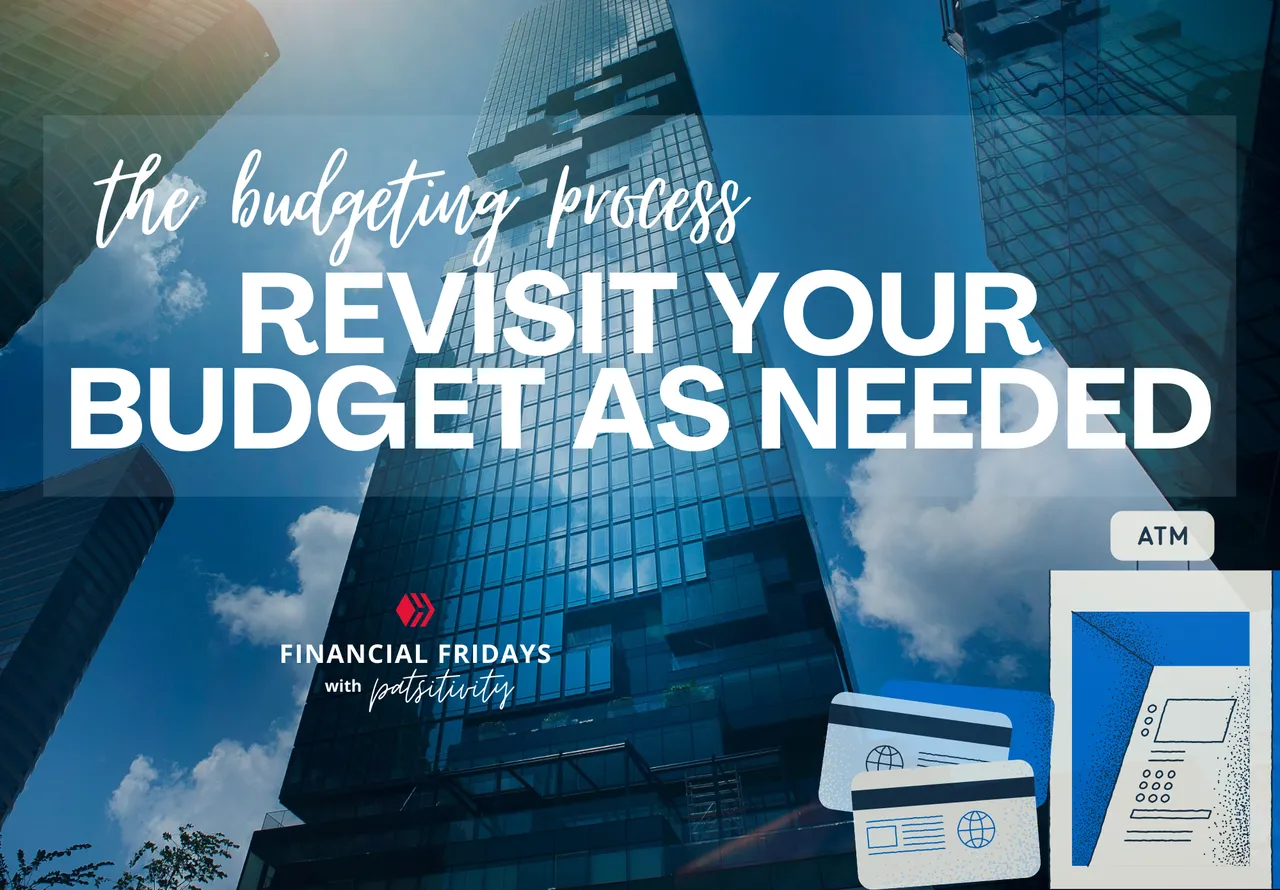
Everything about your Personal Finance including your main income, income from side hustles, expenses, and expenditure categories are more likely to change as time progresses. And so is the way you budget, your budget plan, the tools you use to monitor your expenses, the manner you automate your savings are bound to change.
There is no one best way to budget and to manage finances forever as it will always depend on your needs and what works best for you. Revisiting steps 1 to 4 will allow you to make changes where changes are necessary.
I hope I was able to discuss everything as clearly as possible. If you have questions or points for clarifications, let me know!
I understand that managing our finances can be too much at times, but I just want to remind you that you are more powerful than your money and because of that you have what it takes to make your money work for you.
We'll end here for now. And please, decide on a budgeting plan and automate your savings! 😁

Living life intentionally every single day, she believes that there’s no limit to one’s potentials. Right now, she’s on the loose for the pursuit of endless holistic self-growth and development. She wants to light the way for others. She believes there’s no better way to leave a legacy than to pay it forward.
Her ultimate goal in life is to reach the state of enlightenment where there’s nothing but peace, love, happiness, and contentment - nothing more, nothing less.
If you are captivated by what this girl just wrote here, an upvote is pretty appreciated. Follow her as she tells her stories full of positivities. The next story might be for you! ❤️
